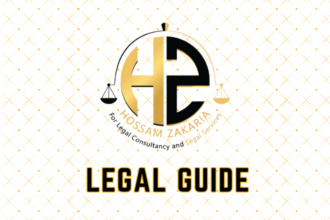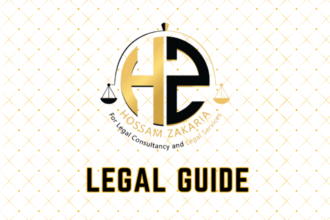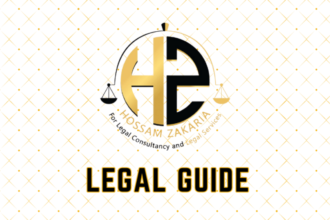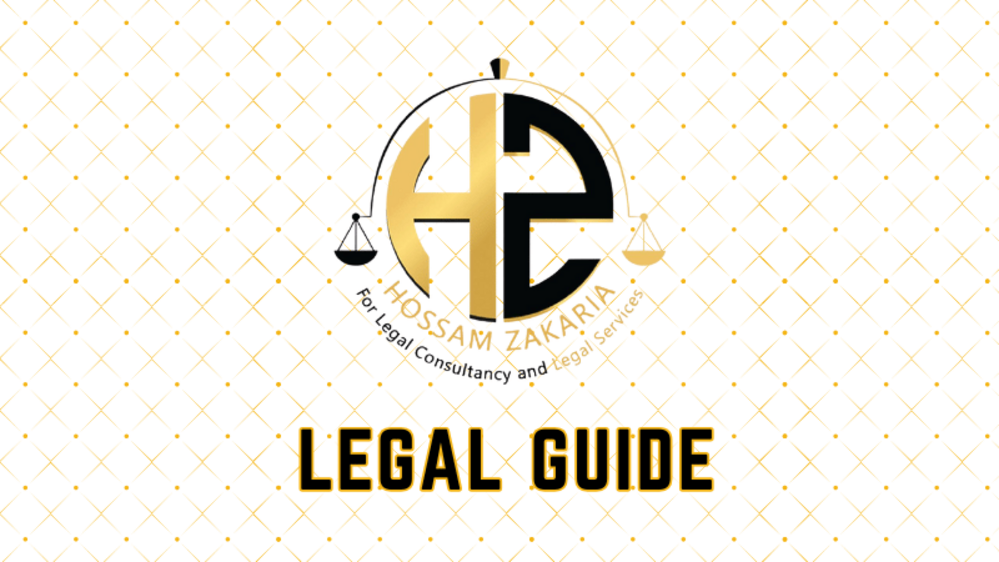Introduction: UAE AI Legal Landscape in 2025
The United Arab Emirates stands at the forefront of digital transformation, positioning itself as the region’s leader in artificial intelligence (AI) adoption, regulation, and governance. The rapid integration of AI across vital sectors—finance, healthcare, education, energy, and government services—has precipitated an urgent need for robust legal frameworks. As a result, UAE businesses in 2025 are navigating a dynamic terrain shaped by updated federal decrees, new cabinet resolutions, and ministerial guidelines—all targeting responsible AI deployment, protection of personal data, risk mitigation, and national security. This article serves as an authoritative consultancy guide for executives, compliance officers, HR leaders, and legal practitioners, providing in-depth analysis and actionable insights into UAE’s ever-evolving legal ecosystem. Understanding and adhering to these AI-specific requirements is now pivotal—not only for regulatory compliance but also for establishing trust and securing long-term business viability in the Emirates. This guide reflects the latest legislative updates and offers practical direction on mitigating risks while maximizing AI’s transformative potential.
Table of Contents
- Overview of UAE AI Legislation and 2025 Updates
- Key Provisions: Federal Decrees and Cabinet Resolutions
- Comparing Old and New AI Compliance Requirements
- Practical Implications for Businesses in the UAE
- Risk, Enforcement, and Non-Compliance Penalties
- Compliance Strategies and Best Practices
- Future Trends and Preparing for What’s Next
- Conclusion: Staying Ahead in a Transformative Legal Environment
Overview of UAE AI Legislation and 2025 Updates
UAE’s Commitment to Responsible AI
The UAE government’s AI strategy is steered by visionary national initiatives, most notably the UAE Artificial Intelligence Strategy 2031, which committed the country to becoming a global AI hub. Regulatory infrastructure has deepened with the issuance of Federal Decree-Law No. 44 of 2021 Concerning the Regulation and Use of Artificial Intelligence and additional Cabinet Resolutions introduced in late 2024 and early 2025. Together, these legislative pillars govern ethical AI development, data privacy, transparency, and liability standards for both public and private entities.
Why the 2025 Legal Updates Matter
Significant developments in 2025 include clarified obligations for AI service providers, specific guidance on algorithmic accountability, and updated enforcement frameworks addressing cross-border AI risks. The UAE Ministry of Justice and the Ministry of Artificial Intelligence have jointly published guidelines outlining the scope and application of new statutory requirements. Given the growing complexity and reach of AI solutions, adherence to these standards is mandatory for continued operation and reputation management within the UAE’s jurisdiction.
Key Provisions: Federal Decrees and Cabinet Resolutions
Main Legislative Instruments
- Federal Decree-Law No. 44 of 2021 Concerning the Regulation and Use of Artificial Intelligence
- Cabinet Resolution No. 103 of 2024 on AI Ethical and Compliance Standards
- Ministerial Guidelines (2025) on AI Impact Assessment and Data Governance
- Federal Decree-Law No. 45 of 2021 Regarding the Protection of Personal Data (where relevant for AI-enabled processing)
Detailed Breakdown of 2025 Amendments
In 2025, several critical amendments came into force:
- Expanded Scope: AI regulations now explicitly cover machine learning, generative AI, predictive analytics, and autonomous systems, including their supply chains and cloud-based implementations.
- Algorithmic Transparency: Organizations deploying AI must provide auditable documentation of core decision logic, especially in sensitive sectors (health, finance, recruitment).
- Mandatory AI Impact Assessments: Risk assessments are now required prior to the deployment of medium- or high-risk AI systems, with periodic reviews and Ministry filings.
- Data Sovereignty and Localization: Restrictions on cross-border transfer of datasets used in AI training and inference, unless explicit regulatory approval is obtained.
- Robust Enforcement Regime: Enhanced sanctions for non-compliance, including administrative penalties, license suspension, and personal liability for senior management.
Professional Analysis: Official Guidance and Regulatory Aims
The core regulatory objective in the UAE is to foster innovation while safeguarding citizens’ rights, ensuring competitive fairness, and reinforcing national security. Regulatory authorities emphasize proportional, risk-based management—meaning higher scrutiny for high-impact applications such as biometric authentication, financial scoring, or autonomous transport. Official resources published by the UAE Ministry of Artificial Intelligence and the UAE Ministry of Justice should be referenced for comprehensive, authoritative guidance as interpretation may vary according to sector and system risk level.
Comparing Old and New AI Compliance Requirements
Key Legal Changes at a Glance
| Area | Pre-2025 Framework | 2025 and Current Requirements |
|---|---|---|
| Scope of Application | Explicitly addressed only standalone AI products | Extends to all AI-enabled services, platforms, and supply chains |
| Algorithmic Accountability | No formal requirement for explainability | Mandatory documentation and audit trails for major decisions |
| AI Risk Assessment | Not compulsory; only recommended in guidelines | Compulsory for medium/high-risk use-cases with Ministry submission |
| Data Localization | General compliance; sectoral exceptions | Strict controls on cross-border AI data transfers |
| Penalties for Non-Compliance | Financial fines; administrative warnings | Higher fines, license suspension, management liability, reputational risk |
Expert Insights
The leap in regulatory demands signal a phase where businesses can no longer rely on ad-hoc compliance. The detailed audit trail requirements and risk impact evaluations, for instance, align with global best practice (notably, the EU AI Act), while remaining attuned to the UAE’s unique legal context. Most notably, obligations now extend to the entire implementation lifecycle, from development and data acquisition to deployment and ongoing monitoring.
Practical Implications for Businesses in the UAE
Who Is Impacted?
- UAE-incorporated companies developing or offering AI systems
- International technology vendors providing AI-driven platforms within the Emirates
- Organizations relying on significant automated decision-making—especially in finance, healthcare, education, human resources, and government contracts
- Startups and SMEs leveraging generative or autonomous AI for workflow optimization
Key Operational Impacts
- Project Timelines: Decision gating is now hinged on successful completion and approval of AI Impact Assessments.
- Increased Documentation Burden: Development and compliance teams must produce evidence of due diligence at every lifecycle stage.
- Supplier and Partner Vetting: Obligations flow down to AI supply chain and cloud service agreements, requiring updated contracting, due diligence, and ongoing oversight.
- Human Oversight: Certain applications demand clearly defined human-in-the-loop processes and escalation protocols.
Case Study: AI-Driven Recruitment Platform
Hypothetical Example: An HRTech company operating in Dubai launches an AI-powered candidate screening tool processing personal data and making hiring recommendations. Under the 2025 regime:
- The company must prepare and submit an AI Impact Assessment to the relevant Ministry, outlining risks of bias, data usage, and transparency mechanisms.
- Management must ensure the platform has auditable explanations for all rejection decisions and candidate scoring processes.
- Data localization provisions require that sensitive Emirati personal data is not transferred to offshore servers without explicit Ministry consent.
- Contracts with their cloud provider must now incorporate AI compliance warranties and audit access clauses.
Practical Recommendation
Legal departments and project managers should collaborate early in the AI solution design phase. Embedding compliance at planning stages minimizes costly delays and retrospective remediation, ensuring project speed and risk alignment with stakeholder expectations.
Risk, Enforcement, and Non-Compliance Penalties
Enforcement Overview
The enhanced regulatory scrutiny is matched by stricter enforcement powers vested in the Ministry of Justice, with close collaboration from the Ministries responsible for sectoral oversight. Businesses are subject to routine compliance audits, mandatory reporting, and unannounced inspections. The regime is expressly extra-territorial in certain circumstances, applying to AI services directed at or impacting UAE residents.
Penalties Comparison Table
| Type of Non-Compliance | Penalty (Pre-2025) | Penalty (2025 and Beyond) |
|---|---|---|
| Failure to conduct AI Impact Assessment | Warning; modest fine | Fines up to AED 5,000,000; possible suspension of AI operations |
| Breach of Data Localization Rules | Administrative warning | Hefty fines; criminal charges for willful violation; personal liability for executives |
| Breach of Transparency Obligations | Not specifically enforced | Enforced penalties; public disclosure orders; license impacts |
Professional Risk Commentary
Failure to comply exposes businesses to significant financial, reputational, and operational risk. Of particular note is the rising trend of personal liability for C-suite executives and directors found negligent in the discharge of oversight duties. The UAE has signaled zero tolerance for AI accidents or data breaches arising from non-compliant systems—underscoring the need for board-level vigilance and proactive management.
Compliance Strategies and Best Practices
Key Elements of an Effective AI Compliance Programme
- Customized Compliance Framework: Align internal controls with the unique risk profile and operational context of your AI initiatives.
- Regular AI Impact Assessments: Institutionalize these as part of new project launches, material upgrades, or entry into new markets or sectors.
- Ongoing Employee Training: Ensure awareness and operational literacy at all levels—developers, data scientists, legal teams, and business users.
- Vendor and Third-Party Management: Use robust contractual tools and due diligence for all AI software, data, and platform suppliers. Require evidence of their legal compliance with UAE standards.
- Internal Audit and Incident Response: Implement clear processes for prompt detection, reporting, and remediation of policy breaches or technical failures.
Suggested Visual: AI Compliance Checklist
- Do you conduct AI Impact Assessments before every major deployment?
- Are your algorithms and key decisions explainable and auditable?
- Are your datasets compliant with data localization, quality, and privacy rules?
- Do contracts with suppliers include AI compliance clauses?
- Is staff training on AI law up to date and documented?
Professional Action Steps
Organizations should commission regular legal reviews, led by consultants with deep understanding of both AI technology and UAE regulatory nuances. Anticipatory compliance—going beyond mere statutory minimums—demonstrates good faith and supports productive engagement with regulators.
Future Trends and Preparing for What’s Next
Upcoming Regulatory Developments
As of early 2025, the UAE Government has signaled further strengthening of compliance, focusing on cross-border AI governance, sector-specific licensing, and enhanced collaboration with GCC and international partners. Anticipated guidance will further clarify the boundaries between permissible AI innovation and impermissible risk, especially in domains involving biometric identity or critical infrastructure. HR leaders, CIOs, and heads of legal should monitor the UAE Ministry of Justice’s Legal Gazette and government portals for new directives, consultation opportunities, and sector-specific updates.
Evolving Sectoral Regulations and Global Alignment
The UAE is carefully harmonizing its AI laws with international norms, such as the EU AI Act and OECD AI Principles, while maintaining legal sovereignty and national interests. This enables Emirati businesses to confidently engage in global AI supply chains and partnerships, provided that robust local compliance is demonstrably in place.
Best Practice: Building Legal Foresight
Establishing an in-house or retained legal AI compliance function—either as a dedicated officer or as part of an innovation counsel team—is strongly recommended. This ensures visibility over both emerging risks and operational opportunities, enabling pre-emptive adaptation to regulatory change.
Conclusion: Staying Ahead in a Transformative Legal Environment
The updated landscape of UAE AI laws in 2025 represents a pivotal moment for enterprises intent on sustainable digital growth. The stakes—ethical, financial, and reputational—have never been higher. By embracing a culture of legal compliance, transparent AI innovation, and diligent management oversight, organizations not only avoid penalties but also build competitive advantage in a dynamic, opportunity-rich market. Ongoing vigilance, sectoral engagement, and expert legal counsel will be essential as the regulatory environment matures. For UAE businesses, the message is clear: proactive compliance and strategic legal planning are not optional—they are the foundation for long-term trust and success in the age of AI.



